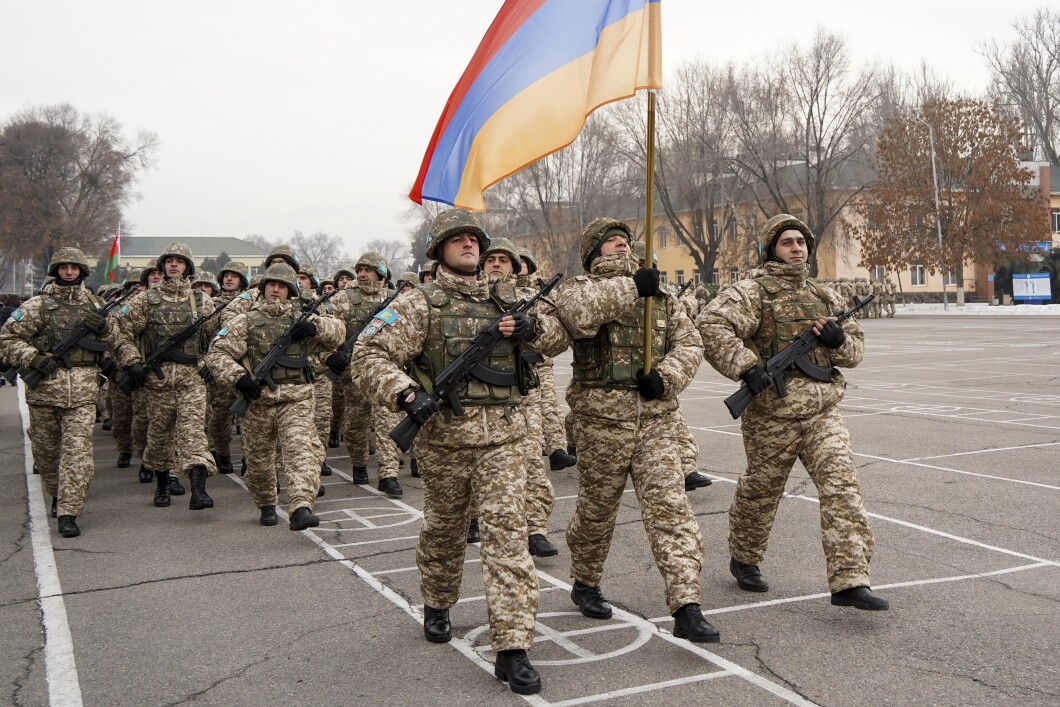
A group that works to help persecuted Christians is hoping to get United States assistance to Armenia in the form of supplying them with arms in a manner similar to what was done for Ukraine.
Philos Project President Robert Nicholson was joined by Ambassador-at-Large for International Religious Freedom Sam Brownback in a press conference ahead of their fact-finding mission to Armenia. The group has largely focused on Christian persecution throughout the Middle East but has shifted its focus this year to focus on Armenia. Nicholson is hoping to drum up support in the United States to push the U.S. government to support Armenia in more direct ways, including providing the country with weapons to even the odds against its hostile neighbor, Azerbaijan.
US BLIND SPOT COULD LEAD TO CHINA’S VICTORY IN TAIWAN WAR

“The situation is very urgent,” Nicholson said. “It’s extremely urgent and existential. I say that comparatively.”
He contrasted the situation with Israel, which though facing no shortage of threats, is powerful and well-protected. Armenia, by contrast, is small and isolated, lacking U.S. support, he said.
“Armenia is a much smaller country, a much more precarious country, a country that is crushed between some pretty big and, in many cases, malicious players and specifically with respect to its neighbor Azerbaijan,” he continued. “Every day that we were on the ground, there were territorial violations of Azerbaijani troops on Armenian soil.”
Nicholson said there are promising signs of the U.S. taking more direct, diplomatic steps to assist Armenia, but more should be done.
“There is, however, a U.S.-led peace process that I think presents a unique opportunity and one that I hope this trip helps push forward,” he said.
“The Armenians inside this territory, first of all, need security guarantees, right? This is the oldest Christian nation facing, for the second time in only about a century, the possibility of genocide. And I think that without those security guarantees, without the United States as a mediator, ensuring that those guarantees are not only there but even more robustly than we might think to place them in otherwise, then that possibility becomes very real.”
Nicholson then transitioned to make the case for arms shipments to Armenia, arguing that the U.S. should remove barriers to weapon shipments to the country.
Preempting fatigue over extensive weapon shipments to Ukraine, he argued that Armenia can make do with much less.
“This is not Ukraine,” Nicholson said. “There is a little that can do a lot in this conflict. The Armenians are not asking for handouts. For example, one of the big roadblocks they face is their inability to buy certain weapons systems from the United States to buy them, not to just get them for free, so that they can protect themselves.
“Are there reasons why those regulations are in place?” he continued. “[Yes], but I think one of the easiest things that we can do as the United States is help Armenians protect themselves. That’s what they want. We have the ability to help them, and I think that we should do that.”
Part of the fact-finding mission will be to outline what actions can be taken by the U.S. government to clear the way for weapon shipments to the country. Nicholson said that a member of his delegation asked a member of the Ministry of Defense what top three weapons the country wanted.
“The official came back saying, ‘Well, three is a nice number, but we’ve actually submitted a list of 13 items,'” he said. The items range from “things like anti-aircraft systems, missile defense systems, to, you know, things that are much smaller, like small arms and comms equipment and things like that. And the requests have until now been denied.”
CLICK HERE TO READ MORE FROM THE WASHINGTON EXAMINER
The reason for the holdup, Nicholson explained, was nervousness over Armenia’s traditional protector, Russia.
“The United States is concerned that whatever weapons it sends to Armenia will fall into Russian hands or the IP will be stolen by Russian engineers,” he said. “Obviously with the Ukraine war raging, that’s … more acute of a problem than even … before.”





